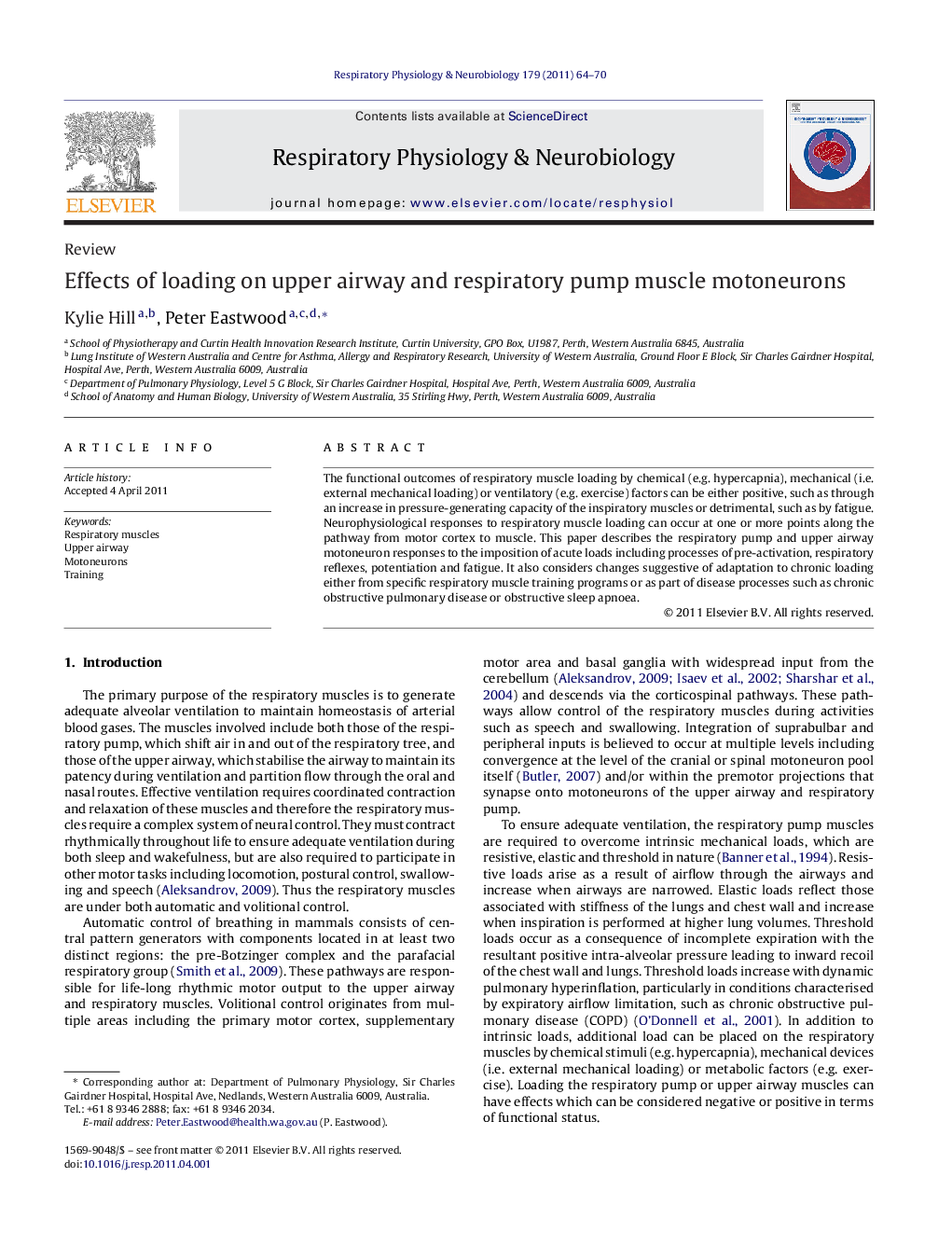| Article ID | Journal | Published Year | Pages | File Type |
|---|---|---|---|---|
| 2847419 | Respiratory Physiology & Neurobiology | 2011 | 7 Pages |
The functional outcomes of respiratory muscle loading by chemical (e.g. hypercapnia), mechanical (i.e. external mechanical loading) or ventilatory (e.g. exercise) factors can be either positive, such as through an increase in pressure-generating capacity of the inspiratory muscles or detrimental, such as by fatigue. Neurophysiological responses to respiratory muscle loading can occur at one or more points along the pathway from motor cortex to muscle. This paper describes the respiratory pump and upper airway motoneuron responses to the imposition of acute loads including processes of pre-activation, respiratory reflexes, potentiation and fatigue. It also considers changes suggestive of adaptation to chronic loading either from specific respiratory muscle training programs or as part of disease processes such as chronic obstructive pulmonary disease or obstructive sleep apnoea.
